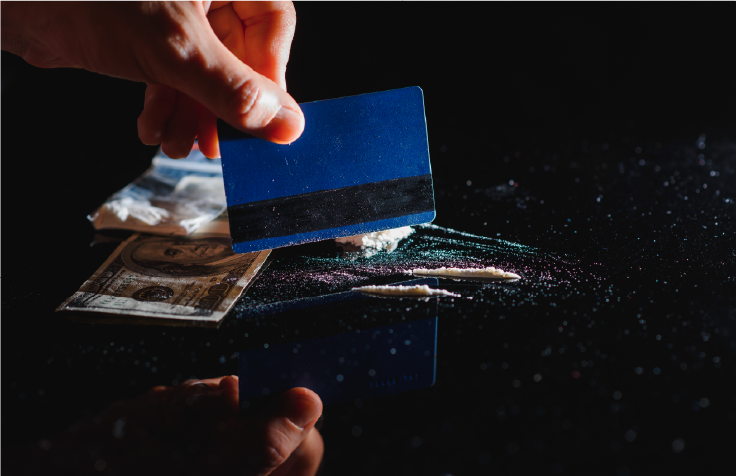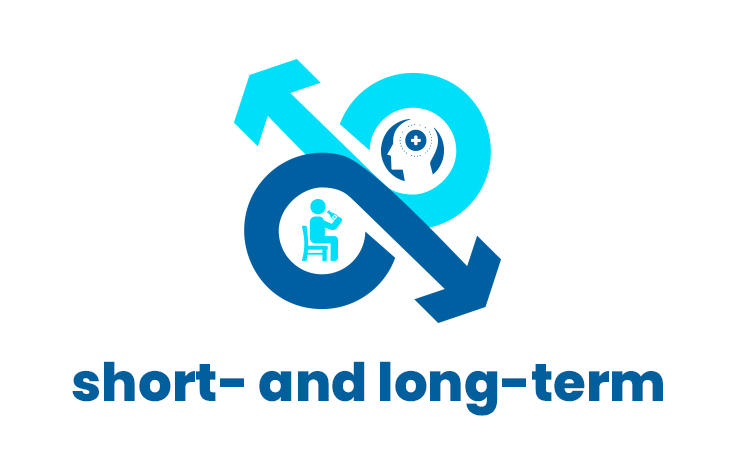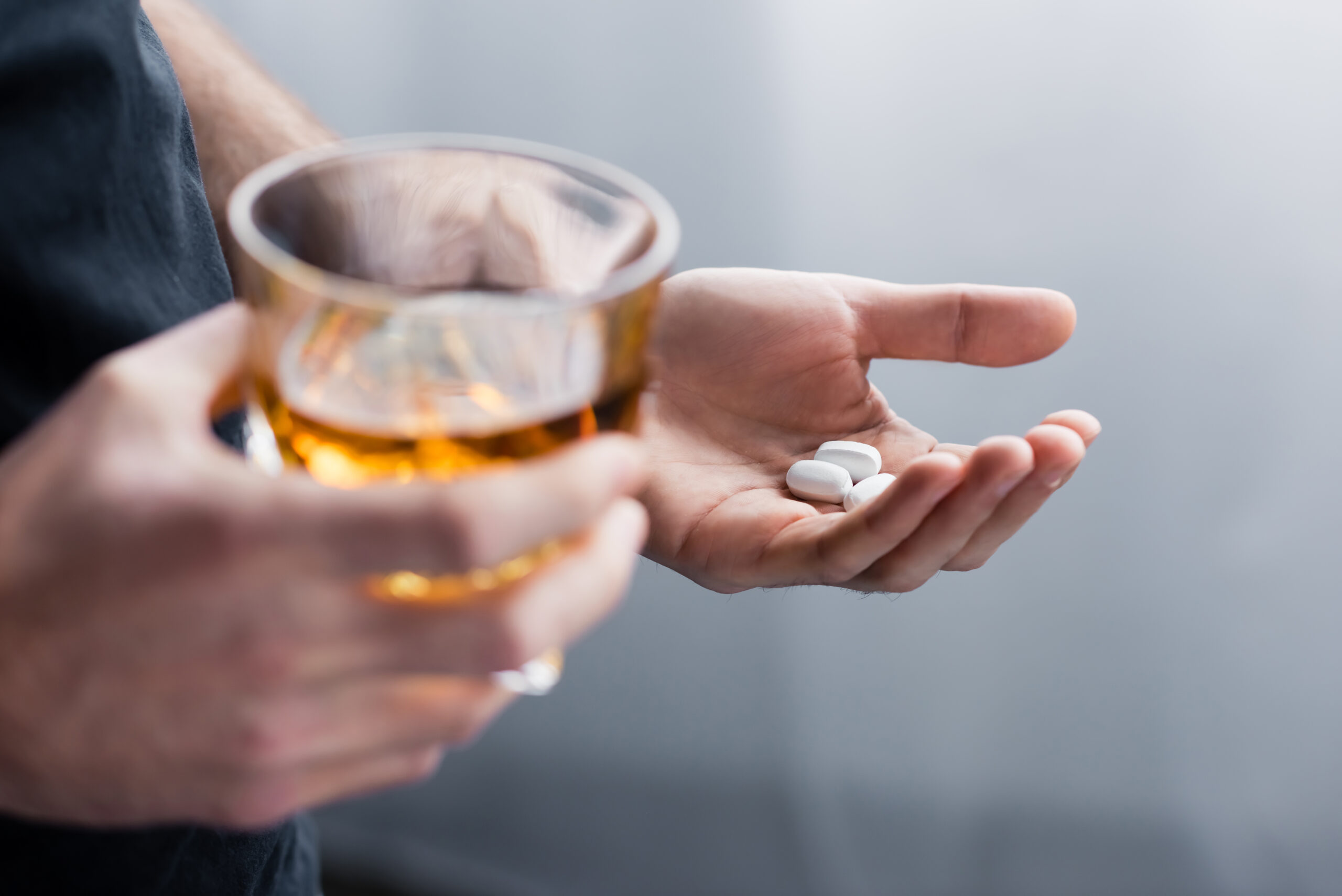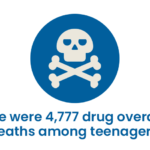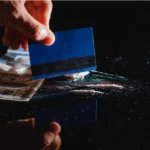Alcohol and prescription drugs, seemingly harmless on their own, can become a dangerous combination when mixed. This hazardous pair is far-reaching and can impact anyone, regardless of age or background.
In the United States, where alcohol consumption and prescription drug usage are prevalent, understanding the potential risks is crucial. We will delve into the dangers of this mixture, shedding light on the physiological and psychological effects it can have on individuals.
By investigating the effects of mixing alcohol and prescription medications, we know the importance of informed decisions. We aim to raise awareness and promote safer practices surrounding alcohol and prescription drug use.
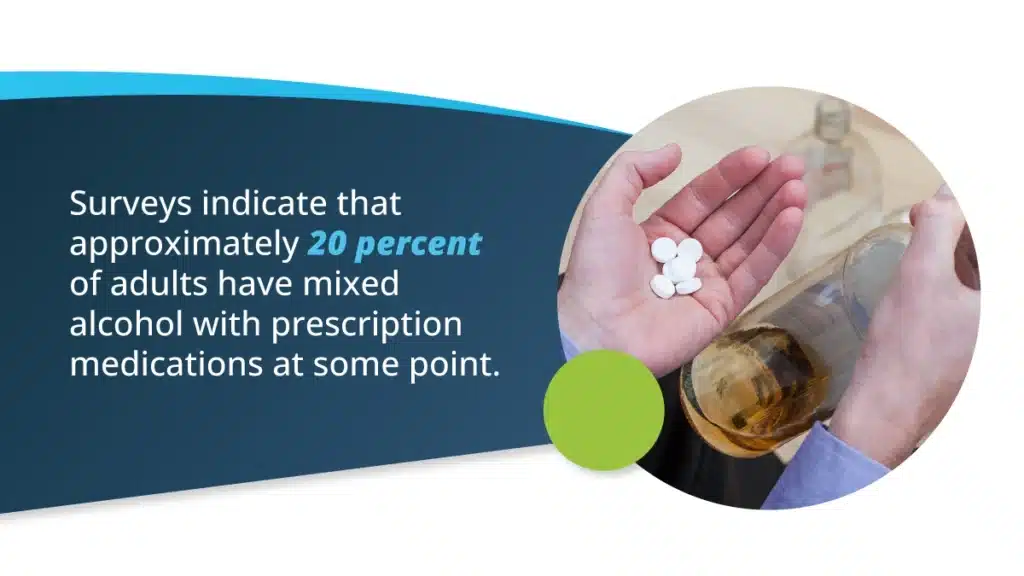
Key Takeaways
In today’s fast-paced society, the use of both alcohol and prescription drugs has become increasingly common.
- Mixing alcohol and prescription drugs can have dangerous interactions.
- Educating oneself about the risks can help in reducing alcohol consumption.
- MAT is often combined with counseling and therapy to provide comprehensive support for individuals seeking recovery.
The Haven Detox-South Florida is here to seek recovery from mental disorders, addiction, and alcoholism. Contact us at (561) 328-8627 for long-term sobriety.
The Growing Concern About Mixing Substances
In today’s fast-paced society, the use of both alcohol and prescription drugs has become increasingly common. However, the alarming trend of combining these substances has raised significant concerns.
According to population statistics in the United States, many individuals engage in this risky behavior. Surveys indicate that approximately 20 percent of adults have mixed alcohol with prescription medications at some point.
The consequences of this practice can be severe, with adverse effects ranging from impaired judgment and motor skills to heightened sedation and respiratory depression. It is crucial to recognize that these risks apply to people of all ages and backgrounds, as alcohol consumption and prescription drug usage are prevalent.
Older adults can drive informed decisions about their health and well-being by understanding the potential dangers of this dangerous combination.
Risks of Mixing Alcohol and Prescription Drugs
Alcohol use disorder is a harmful state that can harm the body. Excessive alcohol use can lead to liver damage and improper function.
It can also impair motor control, increase the risk of heart problems, and cause internal bleeding. Doctors need to inform serious side effects of alcohol to their patients, including memory loss and its impact on older people.
Furthermore, combining alcohol with certain medications, such as antibiotics or antipsychotics, can have additional adverse risks. Understanding the harmful effects of alcohol is crucial for maintaining overall health and well-being.
Interactions Between Alcohol and Prescribed Drugs
When alcohol and prescription drugs are combined, they can interact in unpredictable and potentially harmful ways. Certain medications, such as sedatives, antidepressants, and painkillers, can have intensified effects when consumed with alcohol.
It is because both substances depress the central nervous system, leading to an amplification of sedation, risk of overdose, drowsiness, and impaired coordination. Additionally, alcohol can interfere with the metabolism and absorption of medications, reducing their effectiveness or increasing the risk of toxicity.
Intensified Side Effects
Mixing alcohol with certain prescription drugs can heighten the occurrence and severity of dangerous side effects. For example, combining alcohol with antihistamines can intensify drowsiness, dizziness, and impaired judgment. In the case of opioids or benzodiazepines, the respiratory depression caused by these medications can be dangerously magnified when combined with alcohol, potentially leading to life-threatening situations.
Liver and Kidney Damage
Both alcohol and certain prescription medications can place a severe hurdle on the liver and kidneys. The liver metabolizes alcohol, and prolonged alcohol use can lead to liver harm or even liver failure. Some medications, such as acetaminophen, when combined with alcohol, can increase the risk of liver toxicity. Kidney function can also be adversely affected, as alcohol and certain medications can cause dehydration and strain the kidneys.
Cognitive and Mental Health Decline
The mixture of alcohol and prescription drugs can harm cognitive function and mental health. Alcohol impairs judgment, memory, and decision-making abilities, and these effects can be nasty when combined with medications like antidepressants or anti-anxiety drugs. Mixing alcohol with psychiatric medications can also lead to increased feelings of depression or anxiety and a heightened risk of suicidal thoughts.
Substance Use Disorder
Mixing alcohol and prescription drugs can contribute to developing substance use disorder. Alcohol’s addictive properties and the potential for dependence on certain medications create a dangerous cycle of addiction. Individuals may find themselves relying on both substances to function, leading to a spiral of physical and psychological dependence that can be challenging to overcome.
Strategies for Limiting Alcohol Consumption
Limiting alcohol consumption is an essential step in promoting overall health and well-being. Here are some effective strategies to help individuals in the United States manage their alcohol intake:
Set clear goals: Establish specific and achievable goals for alcohol consumption, such as limiting the number of alcoholic drinks per week or setting alcohol-free days.
Track and monitor: Record alcohol consumption to increase awareness and identify patterns or triggers that lead to excessive drinking. People can do it through a journal or smartphone app designed for tracking.
Plan: Before attending social gatherings or events, plan alternative non-alcoholic beverages or activities to enjoy, reducing the reliance on alcohol for socializing.
Seek support: Reach out to friends, family, or support groups to share experiences, seek guidance, or find accountability partners who can help reduce alcohol consumption.
Create a supportive environment: Surround yourself with individuals who support your efforts to limit alcohol consumption and encourage healthy alternatives.
Practice stress management: Develop healthy coping mechanisms to manage stress, such as exercise, meditation, or engaging in hobbies, which can reduce the desire to turn to alcohol for relief.
Educate yourself: Learn about the potential risks and negative consequences of excessive alcohol consumption, which can motivate and reinforce the decision to limit intake.
Treatment Options and Support
It’s important to recall that treatment options may vary depending on individual needs and preferences. Consulting with healthcare professionals, addiction specialists, or helplines can guide selecting the most suitable treatment approach.
Recovery from alcohol addiction is a journey that requires commitment, support, and a willingness to explore various treatment options. With the right support network and access to appropriate treatments, individuals can find the help they need to overcome alcohol addiction and lead fulfilling, sober lives.
Counseling and Therapy
Counseling and therapy play a crucial role in helping individuals overcome alcohol addiction. Trained professionals, such as psychologists or licensed counselors, provide a safe atmosphere to explore the underlying causes of alcohol abuse and develop coping strategies. Through therapy, individuals can address emotional triggers, learn healthier ways to manage stress, and acquire essential skills to maintain sobriety.
Medication-Assisted Treatment
Medication-assisted treatment (MAT) combines medications with counseling and behavioral therapies to treat alcohol addiction. Experts can prescribe naltrexone, acamprosate, and disulfiram to help reduce cravings, manage withdrawal symptoms, or create adverse reactions when alcohol is consumed. MAT is often combined with counseling and therapy to provide comprehensive support for individuals seeking recovery.
Inpatient Treatment
Inpatient or residential rehabilitation offers intensive care and support for individuals with severe alcohol addiction. It involves residing in a specialized facility for a specific period, typically from a few weeks to several months.
Inpatient treatment provides a structured environment where individuals can receive information and medical supervision, counseling, therapy, and access to support groups. It offers a focused and immersive approach to addressing alcohol addiction and developing the skills necessary for long-term recovery.
Support Groups
Support groups, such as AA (Alcoholics Anonymous), offer valuable motivation and shared experiences for individuals battling alcohol addiction. These groups provide a supportive community where participants can attend regular meetings, listen to personal stories of recovery, and gain insights from others who have successfully overcome alcohol dependence.
Support groups foster a sense of belonging, accountability, and understanding, which can be instrumental in maintaining sobriety and navigating challenges along the recovery journey.
Frequently Asked Questions (FAQs)
How long should I wait after drinking alcohol to take medicine?
The time you should wait after drinking alcohol before taking medicine can vary depending on the medication. It is generally recommended to wait at least one to two hours after consuming alcohol before taking medication.
However, reading the instructions or consulting a healthcare professional or pharmacist for specific guidance regarding your medication is essential. Alcohol can interact with certain medications, affecting their effectiveness or causing adverse reactions, so following the recommended guidelines is vital to ensure your safety and well-being.
Can you drink alcohol while on high blood pressure medication?
It is generally advised to avoid drinking alcohol while taking high blood pressure medication. Alcohol can interrupt the drug’s efficacy, increasing blood pressure levels.
Alcohol can also boost the side effects of high blood pressure medication, such as dizziness or drowsiness. To ensure the medication works optimally and to minimize potential risks, it is recommended to consult a doctor or healthcare professional for guidance on alcohol use while taking high blood pressure medication.
What medication makes you sick if you drink alcohol?
The medication called disulfiram (brand name Antabuse) is known to cause a severe reaction when alcohol is consumed. Disulfiram is mainly used in the treatment of alcohol dependence.
When a person takes disulfiram and then consumes alcohol, it leads to unpleasant symptoms such as nausea, vomiting, headache, flushing, and rapid heart rate. These effects are intended to deter individuals from drinking alcohol while on disulfiram.
Choose Wellness With the Haven Detox-South Florida
If you or a loved one is struggling with mental disorders, addiction, or alcoholism, The Haven Detox-South Florida facility is here to help with different treatment programs. Our residential treatment offers a safe and supportive detox and addiction treatment environment.
Our experienced team understands the triggers and stresses that can contribute to addiction, and we provide personalized care to address your unique needs. Benefits include SMART recovery techniques, withdrawal management, and support for veterans.Verify your insurance coverage because we are committed to your recovery journey. Contact us at (561) 328-8627 today and prepare for admission to start your path toward lasting healing and wellness.


